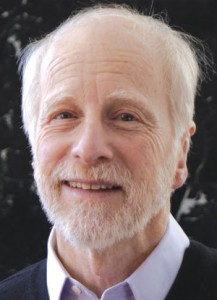Anthony Greenwald
 University of Washington
University of Washington
William James Fellow Award
A renowned expert on human cognition, social psychologist Anthony Greenwald’s work has led to the discovery and documentation of unconscious and automatic thought processes that most people would rather not possess. He ingeniously has taken what had once been a pariah of psychological science — subliminal perception — and turned it into a respectable area of research and even a gold mine for others to excavate.
In 1995, Greenwald and his collaborators, APS Past President Mahzarin R. Banaji, Brian Nosek, and others, created the Implicit Association Test (IAT), which employs association techniques and has been extremely effective in unmasking implicit racism and other forms of bias. Since it debuted on the Internet in 1998, the IAT has been taken more than 14 million times online, helping those who take it gain a new sense of self-awareness. And over the years he has joined others to demonstrate the presence of implicit bias in a variety of contexts, including elections and courtrooms.
Hundreds of papers have been written about the IAT, with scientists examining in particular the impact that the implicit biases have on behavior. Greenwald continues to refine and hone the test and is actively conducting further research to address issues relating to the IAT, including its use for such purposes as diversity training and clinical diagnostics.
Since they first met in 1980, Greenwald and Banaji have shared a strong interest in methods that could reveal unseen influences on social behavior. Their collaborative research on unconscious mental function has dramatically changed the scientific understanding of human behavior. In their new book “Blind Spot: Hidden Biases of Good People,” he and Banaji celebrate their “good fortune in having found a kindred spirit in the other.”
Greenwald’s research has profound implications for nearly every facet of American culture, from race, religion, disability, and age to politics and career choice.





APS regularly opens certain online articles for discussion on our website. Effective February 2021, you must be a logged-in APS member to post comments. By posting a comment, you agree to our Community Guidelines and the display of your profile information, including your name and affiliation. Any opinions, findings, conclusions, or recommendations present in article comments are those of the writers and do not necessarily reflect the views of APS or the article’s author. For more information, please see our Community Guidelines.
Please login with your APS account to comment.